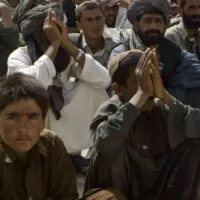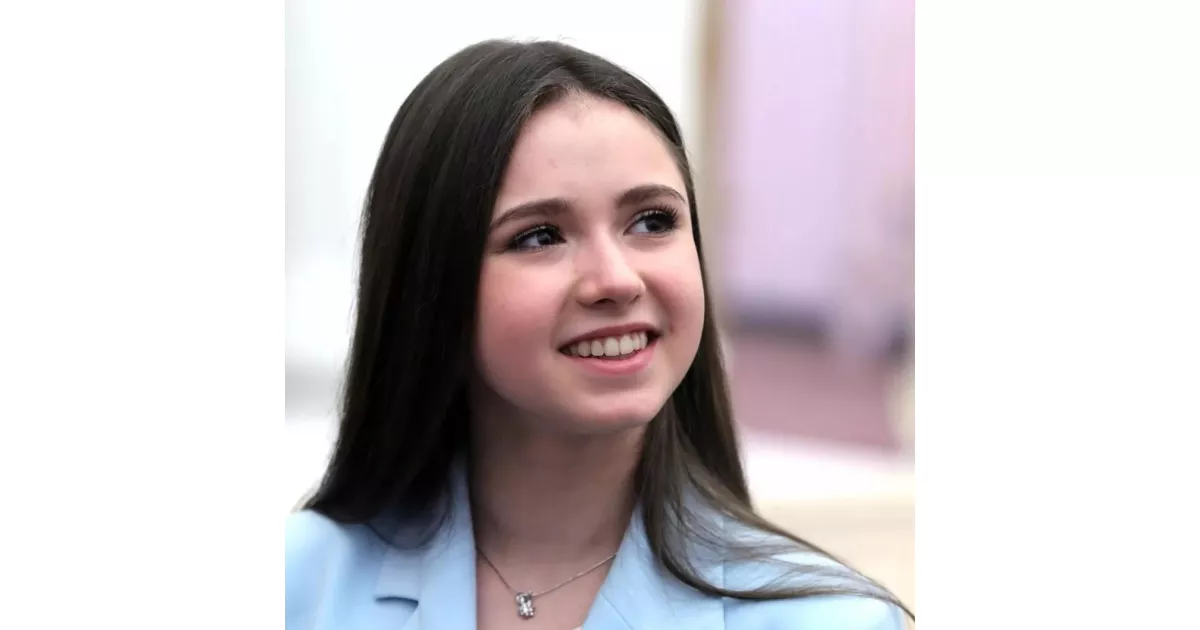Kamila Valieva is a Russian figure skater notable for her achievements, including winning the 2021 Rostelecom Cup, the 2021 Skate Canada, the 2020 Junior World Championship, and the 2019-20 Junior Grand Prix Final. She also secured a silver medal at the 2021 Russian National Championships, establishing herself as a prominent figure in the world of figure skating.
April 2006: Kamila Valieva's Birth
In April 2006, Kamila Valeryevna Valieva was born, marking the beginning of her life and eventual career as a figure skater.
2009: Started Skating in Kazan
In 2009, Kamila Valieva began skating in RSDUSSHOR in Kazan, where she was first coached by Ksenia Ivanova.
2014: Sochi Olympics Venue
In 2021, the Rostelecom Cup was held at Sochi's Iceberg Skating Palace, which was the host venue for skating events at the 2014 Winter Olympics.
2018: Kostornaia's Short Program Record
In 2018, Aliona Kostornaia achieved a short program record at the Junior Grand Prix Final, which Valieva would later approach in 2020.
2018: Short Program Gains Attention
In 2018, recordings of Valieva's short program set to 'Spiegel im Spiegel' gained worldwide attention, with Tutberidze calling it her favorite program and drawing the notice of Picasso's granddaughter.
2018: Switched to Sambo-70
In the spring of 2018, Kamila Valieva switched skating clubs to Sambo-70, where Eteri Tutberidze allowed her to join her group.
August 2019: International Debut and Quad Toe Loop
In August 2019, Kamila Valieva made her international debut at a Junior Grand Prix in Courchevel, France, winning gold and becoming the second female skater to land a quadruple toe loop in competition.
August 2019: Quadruple Toe Loop at Junior Grand Prix
In August 2019, at the junior level of the Grand Prix in France, Valieva performed a quadruple toe loop, making her the second woman to achieve this in ISU competitions.
2019: 2019-20 Junior Grand Prix Champion
In 2019, Kamila Valieva became the 2019-20 Junior Grand Prix Final champion, marking an early career achievement.
2019: Qualified for Junior Grand Prix Final
In 2019, Kamila Valieva qualified in first place for the 2019-20 Junior Grand Prix Final in Turin, Italy after winning two gold medals.
2019: Gifted a Pomeranian
In 2019, Kamila Valieva received a Pomeranian dog named Lëva (Lyova) as a gift from fans.
2019: Junior Grand Prix Final Victory
In December 2019, at the Junior Grand Prix Final, Kamila Valieva won the title after delivering a clean free skate, despite a minor injury preventing her from training the quadruple toe loop jump beforehand.
October 2020: Triple Axel with Complication in Training
In October 2020, a video surfaced showing Valieva performing a triple Axel with a complication in training.
December 2020: Clean Triple Axel at Russian Cup
On December 5, 2020, Valieva cleanly performed the triple Axel in the short program at the stage of the Russian Cup in Moscow.
2020: 2020 Russian Cup Performance
In 2020, Kamila Valieva participated in the Russian Cup, showcasing her new programs and winning a silver medal at the second stage and a gold medal at the fifth stage, achieving high scores in domestic competition.
2020: 2020 Junior World Champion
In 2020, Kamila Valieva won the Junior World Championships, further establishing her as a rising star in figure skating.
2020: 2020 JGP Russia Win
In 2020, at the JGP Russia, Kamila Valieva placed first in both programs with personal best scores, securing the title and qualifying for the Junior Grand Prix Final.
2020: 2020 Russian Junior Championships Win
In early February 2020, Kamila Valieva competed at the 2020 Russian Junior Championships, which she won after placing first in both programs and was named to the Russian team for the 2020 World Junior Championships.
December 2021: Positive Drug Test Sample
In December 2021, Kamila Valieva submitted a sample for a drug test that later tested positive for trimetazidine during the 2022 Winter Olympics.
December 2021: Positive Drug Test Coincident with Competition
In December 2021, Valieva's positive drug test was found coincident with the competition.
December 2021: Valieva Submits Urine Sample
On December 25, 2021, Valieva submitted a urine sample after winning at the Russian Nationals. This sample later tested positive for a banned substance.
December 2021: Valieva's Sample Taken at Russian Championships
On December 25, 2021, Valieva's urine sample was taken by RUSADA at the 2022 Russian Figure Skating Championships.
December 2021: Start of Retroactive Disqualification
Valieva's four-year disqualification was made retroactive to December 25, 2021, due to an anti-doping rule violation, as announced on January 29, 2024.
2021: 2021 Skating Achievements
In 2021, Kamila Valieva achieved significant milestones, including becoming the 2021 Rostelecom Cup champion, the 2021 Skate Canada champion, and the 2021 Russian national silver medalist.
2021: Anti-Doping Violation
In 2021, Kamila Valieva had an anti-doping violation that was later addressed by the Court of Arbitration for Sport (CAS) in 2024.
2021: Senior Grand Prix Debut and World Records
In 2021, Kamila Valieva made her senior Grand Prix debut at Skate Canada International, winning with record-breaking scores. She continued her success at the Rostelecom Cup, setting new world records in the short program, free skate, and total score. However, the Grand Prix Final was later canceled due to the COVID-19 pandemic.
2021: Senior International Debut and World Record Score
In 2021, Kamila Valieva made her senior international debut at the CS Finlandia Trophy, achieving a world record free skate score of 174.31 points and a new world record for total points (249.24).
2021: 2021 Channel One Trophy and Russian Cup Final
In 2021, Kamila Valieva participated in the Channel One Trophy, winning both the short program and free skates. She also won the Russian Cup Final, despite errors in the free skate, securing the overall victory.
January 2022: 2022 Russian Championships and European Championships
In January 2022, Kamila Valieva won the 2022 Russian Championships and made her European Championships debut, finishing first but later having her results nullified by the CAS in 2024 due to a 2021 anti-doping violation. She was also named to the Russian Olympic team.
February 2022: Beijing Olympics Win Endorsed
In February 2022, Valieva's win for team Russia at the Beijing Olympics was considered valid following her passing drug tests in Beijing.
February 2022: Positive Doping Test Results Forwarded
In February 2022, after the Beijing Olympics had started, the positive doping test results from Valieva's December 2021 urine sample were forwarded for evaluation.
February 2022: Awarded the Order of Friendship
In February 2022, after the end of the Olympics, Valieva received the Order of Friendship from President Vladimir Putin.
February 2022: Medal Ceremony Delayed Due to Positive Test
In February 2022, specifically on February 8, the medal ceremony for the team event at the Olympics, where the ROC won gold, was delayed. It was later confirmed on February 11 that Valieva had tested positive for trimetazidine, with the sample being taken on December 25, 2021.
March 2022: Valieva's "B" Sample Not Requested, Explanation Provided
By March 9, 2022, Valieva had not requested testing of her "B" sample, and her explanation was that the banned substance belonged to her grandfather. On March 17, WADA requested that RUSADA complete its report on Valieva by August 8, 2022.
March 2022: Awarded "Duslyk" Order and Medal
On March 18, 2022, in Kazan, Tatarstan President Rustam Minnikhanov awarded Valieva a "Duslyk" order and a medal to her mother.
June 2022: ISU Raises Minimum Age for Competition
On June 7, 2022, the ISU raised the minimum age for competition at figure skating events from 15 to 17 years of age following the Valieva incident at the Beijing Olympics.
August 2022: WADA Deadline for RUSADA Report
On March 17, 2022, WADA requested that RUSADA complete its report on Valieva and her entourage by August 8, 2022.
October 2022: Valieva Competes in Russian Grand Prix
In October 2022, Valieva continued to compete within Russian borders, participating in the Russian Grand Prix, despite Russia's ban from international skating events.
November 2022: WADA Appeals Valieva Case to CAS
On November 14, 2022, the World Anti-Doping Agency (WADA) registered an appeal with the Court of Arbitration for Sport (CAS) regarding a possible anti-doping rule violation by Kamila Valieva.
December 2022: Valieva Sanctioned by Ukrainian Government
In December 2022, the Ukrainian government issued personal sanctions against 56 athletes, including Valieva, accusing them of supporting the war in Ukraine.
2022: Domestic Grand Prix Series
In 2022, Russian and Belarusian athletes were banned from international events, leading the Russian Figure Skating Federation to host its own Grand Prix series. Valieva participated, winning gold at the Golden Skate of Moscow despite a fall. She also won gold at the Grand Prix stage in Kazan. At the Russian Championships, she finished second overall.
2022: Transparency Concerns
In 2022, concerns were raised about the lack of transparency in the Valieva case, leading to distrust in the anti-doping system.
2022: 2022 Winter Olympics Team Event
In 2022, during the Winter Olympics team event, Kamila Valieva contributed to the Russian team's apparent first-place finish with strong performances, but the medal ceremony was postponed due to a doping investigation. In 2024, her results were nullified and her team medal was stripped.
2022: Positive Drug Test and Disqualification
In 2022, during the Winter Olympics, a drug test sample from Valieva tested positive for trimetazidine, leading to controversy and later disqualification from some events.
2022: 2022 Russian Figure Skating Championships
In 2022, following Valieva's disqualification from the Russian Championships due to a positive drug test, Alexandra Trusova was awarded the gold medal, Anna Shcherbakova the silver, and Adeliia Petrosian the bronze.
2022: ISU Disqualifies Valieva
In 2022, the ISU disqualified Valieva from the European Championships and the Winter Olympics, leading to reallocation of medals.
2022: Participated in 2022 Channel One Trophy
In March 2022, Kamila Valieva participated in the 2022 Channel One Trophy, a Russian domestic competition, where she performed a double axel in the short program and a quadruple toe loop in free skating.
2022: Russian Olympic Committee Participation
In March 2023, the IOC specified that Russian athletes should not be allowed to compete under the Russian Olympic Committee as they did in Beijing 2022, due to the war.
January 2023: RUSADA Strips Valieva of Gold Medal
On January 13, 2023, RUSADA stripped Valieva of her gold medal from the 2022 Russian Figure Skating Championships due to a positive drug test for trimetazidine. However, RUSADA did not strip her Olympic gold medal, prompting WADA to appeal to the Court of Arbitration for Sport.
March 2023: CAS Selects Judges for Valieva Case
In March 2023, CAS was in the process of selecting a 3-judge panel to decide on Valieva's eligibility for the next Winter Olympics based on their investigation.
March 2023: IOC Supports Return of Russian and Belarusian Athletes
In March 2023, the IOC stated its support for the return of Russian and Belarusian athletes like Valieva, under specific conditions of neutrality.
June 2023: CAS Announces Hearing Dates
On June 22, 2023, CAS announced that the hearing in the doping case was scheduled to take place September 26–29, 2023.
September 2023: CAS Panel of Arbitrators Announced
On September 15, 2023, it was announced that British lawyer James Drake would lead the CAS panel of arbitrators for Valieva's doping case.
September 2023: CAS Adjourns Hearing
On September 28, 2023, CAS adjourned Valieva's hearing until November 9–10 after ordering the production of further documentation.
January 2024: CAS Disqualifies Valieva
On January 29, 2024, CAS disqualified Valieva for four years retroactive to December 25, 2021, for an anti-doping rule violation.
January 2024: CAS Ruling and Ban
On January 29, 2024, the Court of Arbitration for Sport (CAS) ruled on Valieva's doping case, imposing a four-year ban backdated to December 25, 2021, and disqualifying her from competitive results from that date.
January 2024: CAS Final Decision Expected
On November 10, 2023, CAS announced that a final decision in Valieva's case was expected by the end of January 2024.
2024: Valieva's Results Nullified
In 2024, Kamila Valieva's results in the 2022 Olympic team event were nullified and her team medal was stripped by a decision of the CAS due to doping allegations.
2024: Eligibility of Russian Athletes
In 2024, it was reported that the terms of the eligibility of Russian athletes at the Summer Olympics allowed for 15 Russian 'neutrals' to fully participate apparently allowing for the possibility for Valieva to participate at the 2026 Winter Olympics.
2024: CAS rescinds 2022 European Championship results.
In 2024, the Court of Arbitration for Sport (CAS) rescinded Kamila Valieva's first-place finish at the European Championships due to a 2021 anti-doping violation.
2026: Potential Eligibility for 2026 Winter Olympics
Although technically eligible after her suspension, Valieva's participation in the 2026 Winter Olympics is uncertain due to ongoing sanctions against Russia as of January 2024.
2026: Potential Participation in 2026 Winter Olympics
In 2024, there was a possibility for Valieva to participate at the 2026 Winter Olympics.
Mentioned in this timeline

Vladimir Vladimirovich Putin is a Russian politician and former intelligence...
Ukraine is a large country in Eastern Europe second in...
Belarus is a landlocked country in Eastern Europe bordered by...
France officially the French Republic is primarily located in Western...
Russia officially the Russian Federation is a transcontinental country spanning...
Canada is a North American country the second largest in...
Trending
Nicholas Braun is an American actor best known for his portrayal of Greg Hirsch in the HBO series Succession earning...

Lunar New Year marks the start of a new year based on lunar or lunisolar calendars Lunar calendars have a...

4 months ago Rivian Announces Layoffs of Over 600 Workers Amid Electric Vehicle Market Slowdown
Elisabetta Cocciaretto is an Italian professional tennis player known for her achievements in both singles and doubles She reached a...
John Jack Bouvier Kennedy Schlossberg is an American writer and political commentator As the only grandson of President John F...
3 months ago Good Morning America Celebrates 50 Years: Anchors Reflect on Success and Show's Impact.
Popular

Kid Rock born Robert James Ritchie is an American musician...
The Winter Olympic Games a major international multi-sport event held...

XXXTentacion born Jahseh Dwayne Ricardo Onfroy was a controversial yet...

Barack Obama the th U S President - was the...

Melania Trump a Slovenian-American former model has served as First...

Hillary Diane Rodham Clinton is an American politician lawyer and...
